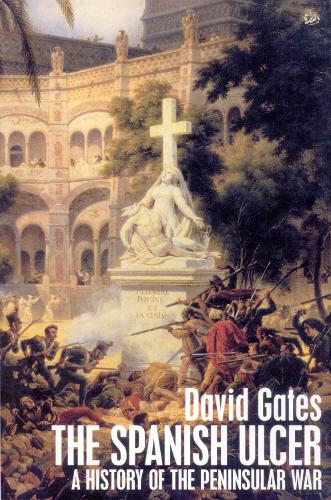
The Spanish Ulcer: A History of the Peninsular War
(Paperback)
Publishing Details
The Spanish Ulcer: A History of the Peninsular War
By (Author) Dr David Gates
Vintage
Pimlico
1st July 2002
United Kingdom
Classifications
Tertiary Education
Non Fiction
War and defence operations
Specific wars and military campaigns
Early modern warfare (including gunpowder warfare)
940.274
Physical Properties
Paperback
592
Width 156mm, Height 234mm, Spine 31mm
606g
Description
By July 1807, following his spectacular victories over Austria, Prussia and Russia, Napoleon dominated most of Europe. The only significant gap in his continental system was the Iberian Peninsula. He therefore began a series of diplomatic and military moves aimed at forcing Spain and Portugal to tow the line, leading to a popular uprising against the French and the outbreak of war in May 1808. Napoleon considered the war in the Peninsula, which he ruefully called "The Spanish Ulcer", so insignificant that he rarely bothered to bring to it his military genius, relying on his marshals instead, and simultaneously launching his disastrous Russian campaign of 1812. Yet the war was to end with total defeat for the French. In late 1813 Wellington's army crossed the Pyrenees into the mainland of France. This history of the war combines scholarship with a vivid narrative, revealing a war of unexpected savagery, of carnage at times so great as to be comparable to World War I. But it was also a guerilla war, fought on beautiful but difficult terrain, where problems of supply loomed large. The British Navy, dominant at sea after Trafalgar, was unable to provide crucial support to the hard-pressed, ill-equipped and often outnumbered forces fighting the French. Gates' history provides a serious assessment of the opposing generals and their troops, as well as analyzing in detail the social and political background.
Author Bio
Dr David Gates is Lecturer at the Centre for Defence Studies, University of Aberdeen, and the leading British scholar on the Napoleonic Wars.
